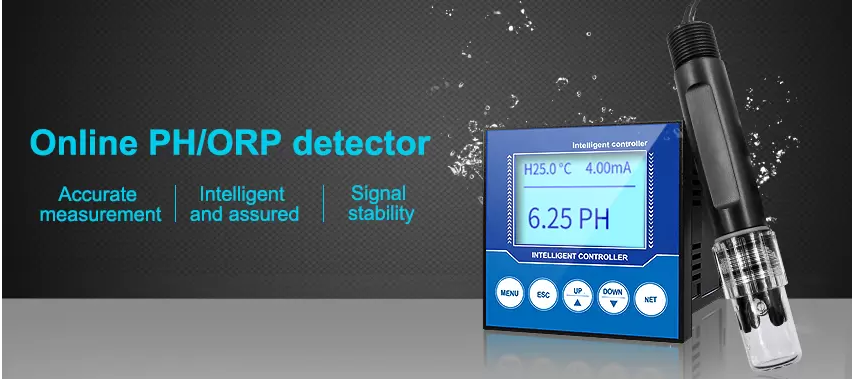Summary:
PH is one of the important indicators of water quality. In sewage treatment, industrial production, environmental monitoring, education and scientific research, aquaculture, civil water and other fields need to carry out PH testing. At present, the common PH detection method on the market is to use the water quality PH sensor, PH sensor is used to detect the concentration of hydrogen ions in the solution to be measured and converted into the corresponding available output signal of the water quality sensor, this way to obtain accurate PH parameters.
So how should choose PH sensor?
1. Is automatic temperature compensation (ATC) required?
PH measurements depend on temperature. If an extreme and varying temperature range is required during the testing process, temperature compensation is likely to be required for pH measurements. When determining whether automatic temperature compensation (ATC) is required, the required pH accuracy, process temperature range and pH measurement range should be considered.
2. pH sensor can be compatible with the instrument you need to use?
Before choosing a PH sensor, know whether the industrial PH sensor can be connected to the instrument you want to use (such as: controller, transmitter, analyzer, etc.).

Product Introduction:
JXCT water quality PH sensor adopts high-precision probe, measurement accuracy and stability, measurement range of 0 ~ 14.00 PH, using two-point calibration method, small error, higher accuracy. With automatic temperature compensation function, automatic temperature supplement and manual temperature supplement can be switched at will, the water quality sensor can work within 0 ~ 60℃, relative humidity 0 ~ 85%, electrode temperature 0 ~ 80℃, optional digital display controller.
Compared with the traditional PH measurement method, the operation is simple, the data is accurate and fast, and the collected signal can also be connected to the environment monitoring host to upload to the environment monitoring cloud platform provided by our company for free, supporting a variety of login methods including computer web, mobile APP and wechat public account, to view the data anytime and anywhere.
How to choose the electrode?
In the selection of water quality PH sensor, in addition to understand the functional characteristics of the sensor, but also need to understand the environmental conditions in the use process.
For different use environment, jiandalen industrial PH sensor is equipped with six different electrodes for choice, which are conventional composite electrode, plane desulfurization electrode, tetrafluoride electrode, electroplating electrode, glass electrode, antimony electrode.
1. Conventional composite electrode
Scope of application: non-corrosive weak acid and weak alkali environment of industrial sewage, domestic sewage, agriculture, aquaculture industry and other scenarios.
2. plane desulfurization electrode
The electrode is a special PH electrode for slurry and desulfurization, because it is flat head, it is not easy to scale and easy to clean. So it is the most suitable electrode for desulfurization.
Scope of application: used for various industrial wastewater, environmental water treatment, mineral suspension, PH measurement in flue gas desulfurization, etc.
3. Tetrafluoride electrode
The electrode shell material is polytetrafluoroethylene, suitable for strong acid, alkali, organic corrosion occasions.
Scope of application: industrial, organic wastewater, on-line monitoring, etc.
4. Electroplating electrode
Double liquid junction, reduce the pollution of reference liquid, long-distance reference diffusion path, greatly prolong the service life of electrode in harsh environment, convenient maintenance.
Scope of application: sewage treatment, electroplating sewage fermentation, high organic content occasions.
5. Glass electrode
The electrode shell is made of glass.
Scope of application: biological engineering, pharmaceutical, beer, chemical, semiconductor and electronic industry or a certain corrosive effect of the place.
6. antimony electrode
Antimony electrodes are ph-sensitive, and because they are strong, they are best used in applications where a strong electrode is required, such as PH tests for hydrofluoric acid solutions.